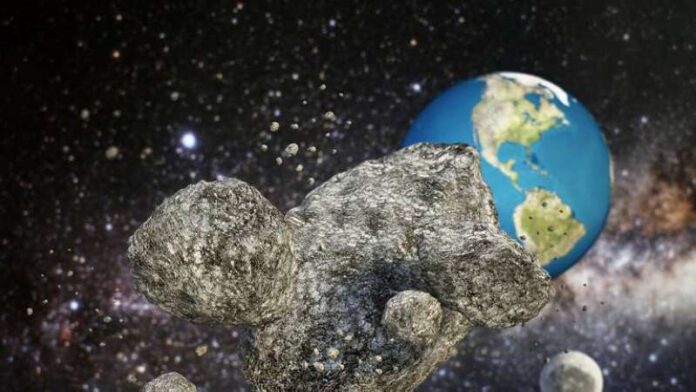NASA scientists revealed that they are in the “final stage” of their mission to avoid an asteroid colliding with Earth with a force equivalent to 22 atomic bombs.
Scientists believe that September 24, 2182 represents the day on which the asteroid “Bennu” (after the name of a mythical Egyptian bird) could hit the Earth, reports Al-Rai daily.
This space rock passes near our planet every six years, but it will have its closest encounter with Earth 159 years from now.
Although the odds of a catastrophic strike are estimated at 1 in 2,700, NASA launched a spacecraft to Bennu seven years ago to collect samples from it. They hope the data will help prepare them, if needed, for a rerouting mission similar to NASA’s Double Asteroid Redirection (DART) mission, which successfully changed the orbit of the small asteroid’s moon Demorphos last year.
Asteroid samples from the OSIRIS-REx mission will arrive on Earth this week and land in the Utah desert on September 24.
“We are now in the final phase of this seven-year journey,” OSIRIS-REx project manager at NASA’s Goddard Space Flight Center in Greenbelt, Maryland, Rich Burns, told the Sunday Telegraph. “It is very similar to the last few miles of a marathon, with emotions such as pride and joy coming together with a determined focus to complete the race well.”
Bennu is about 492 meters across (half the size of the one that supposedly led to the extinction of the dinosaurs), so it is not large enough to cause a global extinction.
NASA estimates that it could cause an impact crater 9 kilometers wide and cause destruction over an area with a radius of about 965 kilometers from the crash site.
Overall, there is a 1 in 1750 chance that Bennu will collide with Earth between now and 2300.
The samples, contained in a refrigerator-sized capsule, will be launched to Earth from the OSIRIS-REx spacecraft once it reaches a distance of 101,388 kilometers (63,000 miles) from the planet.
On board the spacecraft is an estimated 250 grams of rocky material collected from the surface of Bennu in 2020. It is NASA’s first asteroid sample and the largest amount ever collected in space.
The capsule will enter the Earth’s atmosphere at 3.42 pm GMT on September 24, traveling at a speed of approximately 45,061 kilometers (28,000 miles) per hour, with temperatures reaching twice the temperature of lava.
Parachutes will then be deployed to slow the capsule’s speed to about 18 kilometers (11 miles) per hour so it can land safely at the Department of Defense Test and Training Range in Utah southwest of Salt Lake City.
The capsule must be recovered from the Earth as quickly as possible to avoid contamination of the sample with the Earth’s environment. In addition to helping protect the planet, samples taken from Bennu could also contain secrets about the origin of life on Earth.
“Original materials from asteroid Bennu will help shed light on the formation of our solar system 4.5 billion years ago and perhaps even on how life began on Earth,” said Nicola Fox, associate administrator for NASA’s Science Mission Directorate in Washington.

















